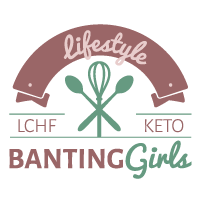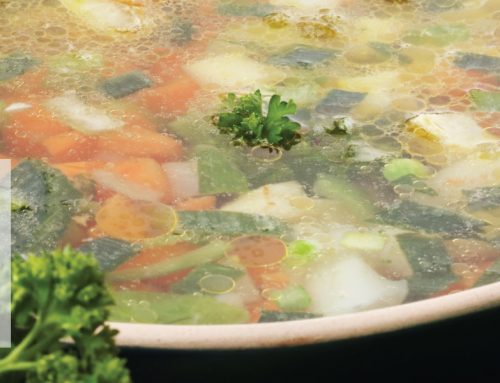When you think of potassium the first thing that comes to mind is eating bananas, however on a low carb lifestyle we do not recommend eating bananas as it is high in carbs. So what alternative do we have?
Potassium is a mineral that enables our bodies to work properly. It’s described as a type of electrolyte. Electrolytes conduct electrical impulses throughout the body and helps our nerves function and helps our muscles to contract. As our heart is also a muscle it helps our heartbeat stay regular. It also helps move nutrients into cells. Potassium is not produced naturally by the body so it is important to consume the right balance.
How much potassium should we consume per day? Adults from 18 years up should consume 4,700 milligram per day, pregnant women 4,700 milligram per day, breastfeeding women 5,100 milligram per day – see WebMD for more info.
You can get most of the potassium that you need from food. Great sources are:
- Leafy greens like spinach, kale, and collard greens
- Fruit from vines such as blackberries
- Root vegetables such as carrots and sweet potato
- Citrus fruit such as lemons and limes
Top low carb potassium rich foods
Avocado
1 avocado provides 1,067 milligrams – avocado is definitely the favourite potassium rich food. We love to eat a half of avocado every day. Not only does an avocado have loads of potassium, but it is also full of healthy omega 3 fat which is so good for your body.
Acorn squash
1 cup provides 896 milligrams – acorn squash is a vegetable source of potassium and also contains high levels of antioxidants.
Spinach
1 cup cooked provides 839 milligrams – spinach is not only Popeye power food, it is great for the body.
Sweet potato
1 medium sweet potato provides 952 milligrams – sweet potatoes have a higher density of nutrients than white potatoes, high in beta-carotene, vitamin C and vitamin B6.
Wild-Caught Salmon
½ filet provides 772 milligrams – always best to get wild-caught salmon, but we advocate purchasing what your budget allows. Salmon is also loaded with omega 3 fatty acids. Omega 3 decreases the risk of heart disease and stroke and also helps reduce symptoms of depression, high blood pressure and joint pain. Canned salmon also has loads of benefits if you can’t get wild-caught salmon.
Tomato Sauce
1 cup of homemade tomato source provides 728 milligrams – A good source of Vitamin A, Vitamin C, Vitamin E, Vitamin K, Vitamin B6 as well as potassium. See BantingGirls recipe for homemade Spicy Tomato Sauce with great ingredients!
Swiss chard
1 cup of cooked chard provides 728 milligrams –also packed with calcium, iron and vitamins A, C and K.
Yogurt
1 cup of homemade yogurt provides 579 milligrams – also packed with calcium, iron and vitamins A, C and K. BantingGirls loves to make our own homemade probiotic yogurt which is very good for your gut health as well.
Benefits of potassium-rich foods
Boosts Heart health
Potassium plays a direct role in making sure that your heart rhythm is healthy and that it beats as it should.
Decrease cramps
Muscle weakness, aches and cramps are common side effects of a low potassium level. Potassium is also helpful for cramps related to premenstrual syndrome (PMS).
Reduce risk of stroke
There is a positive relationship between an increased potassium intake and a decreased stroke risk is believed to be from dietary sources rather than supplements
High Blood Pressure (Hypertension)
The Harvard Medical School updated a publication with the following statement “the average American diet delivers too much sodium and too little potassium”. Studies show that eating a diet high in potassium especially from fruit and vegetables lowers blood pressure. However, if you have kidney problems medical professionals advise to keep your potassium intake within the recommended levels or lower.
Osteoporosis protection
Research has found that there is a relationship between increased bone density and increased intake of dietary potassium.
“This 2015 study out of the University of Surrey published in the journal Osteoporosis International found that a high consumption of potassium salts significantly decreases the urinary excretion of both acid and calcium. Why is this significant? Because the potassium salts actually help the bones not to reabsorb acid and also to maintain its vital mineral content. So by consuming potassium-rich fruits and vegetables, you can actually help preserve your bones and prevent serious bone-related health issues like osteoporosis.”
Symptoms of potassium deficiency
The body performs a balancing act between two electrolytes, potassium and sodium. When sodium levels go up then potassium levels go down and vice versa. It is important not to overdo it on sodium but also crucial to keep potassium intake up, to prevent the following symptoms:
- Fatigue
- Constipation or nausea
- Irritability
- Muscle cramps, spasms and weakness
- Weight gain
- Blood pressure problems
- Heart palpitations or irregular heart beat
- Abdominal cramping, bloating
- Depression
Here is an excellent video to watch, by Dr Eric Berg M.D on potassium.
Check out some of our recipe favorites (at the end of the page) that will boost your potassium levels.
Lastly, remember LCHF is not a diet, it is a lifestyle change.
Excel with a Low Carb Lifestyle.
Blessings and greetings, until next time!
Eunice & Gina
BantingGirls
https://draxe.com/recipe/sweet-potato-hash/
https://draxe.com/recipe/avocado-salad-wrap/
https://draxe.com/recipe/grecian-spinach/
https://draxe.com/recipe/roasted-acorn-squash/





